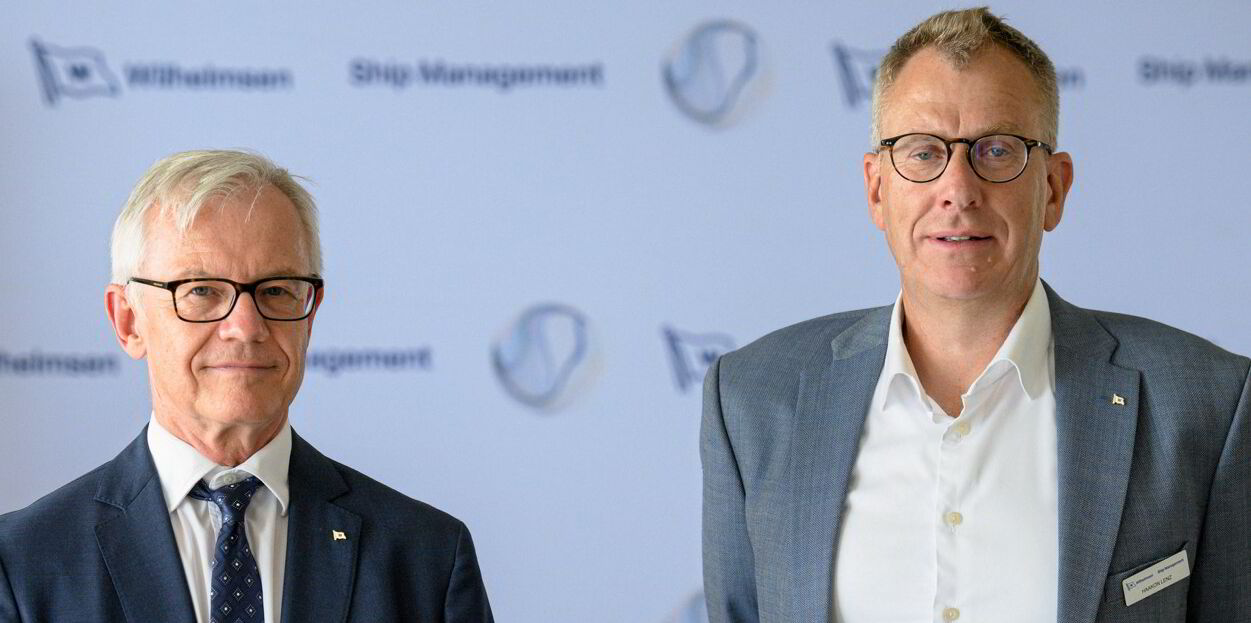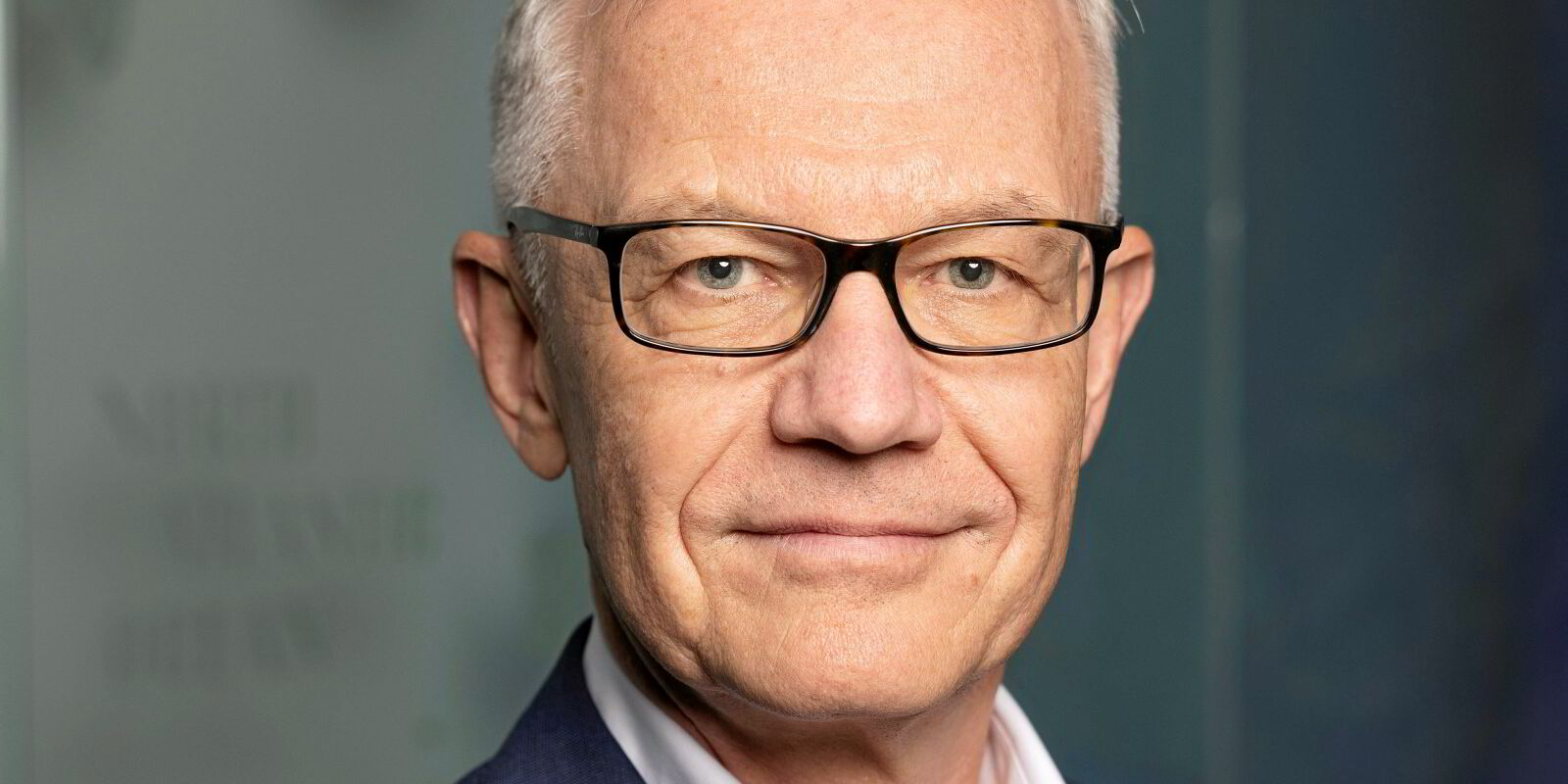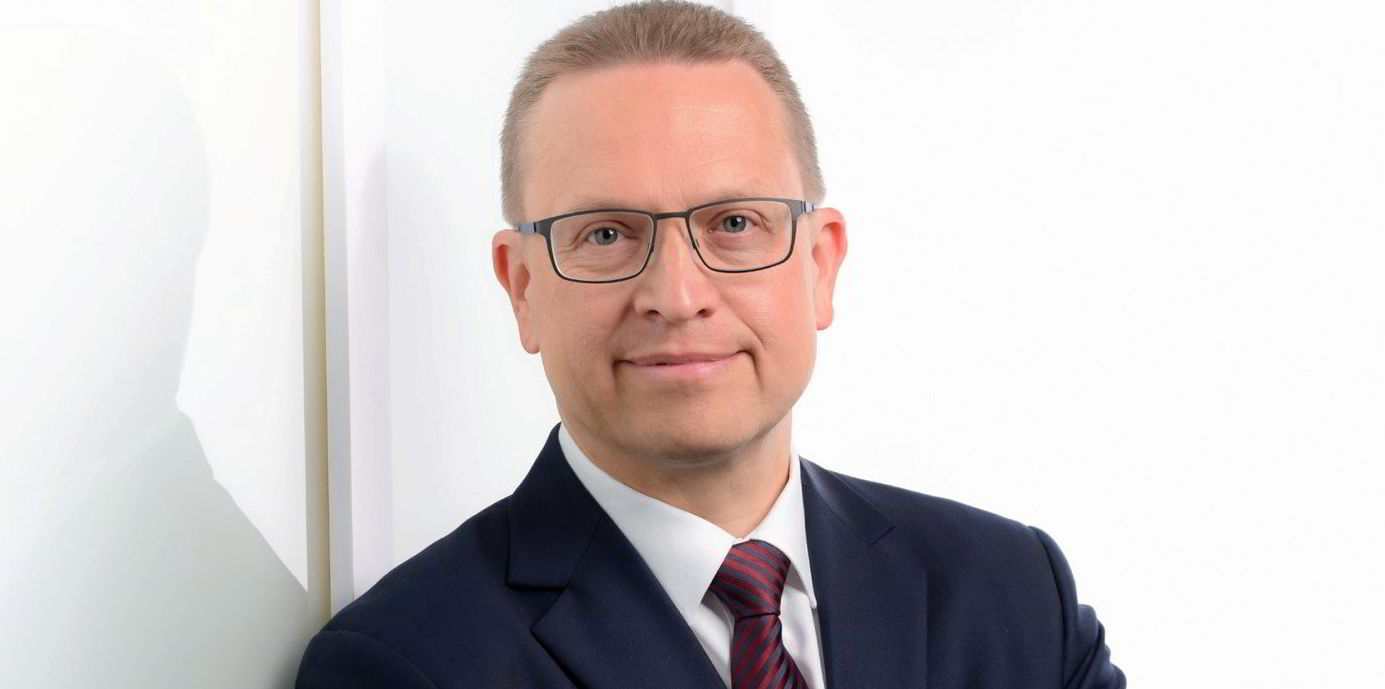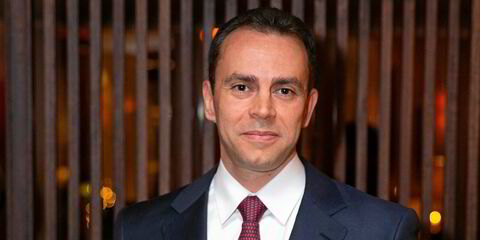Carl Schou is leaving on a high note.
The longtime chief executive and president of Wilhelmsen Ship Management — who recently announced his retirement at the end of the year — sees a bright future for his sector as it becomes more complicated and the cadre of non-traditional owners grows.
“I am positive third-party ship management will grow strongly moving ahead. With the complexities coming [and] finding competent people to work both onshore and ships”, the demand is growing, the former seafarer told TradeWinds.
Schou pointed out the obvious: the growing number of emissions regulations that owners and operators have to cope with, from the International Maritime Organization and the European Union, is changing ship management “dramatically”.
Clients are expecting more performance management measures on board to maximise performance and cut emissions.
On the digitalisation side, that has led Wilhelmsen Ship Management to focus on data collection and analysis in an effort to provide owners and operators with “something sensible”, he said.
All this means scale is important if managers are to be able to tackle decarbonisation effectively.
Wilhelmsen Ship Management has more than 450 vessels under management, so it can apply lessons learned on one vessel across the entire fleet, Schou said.
This means more merger-and-acquisition activity could be on the way.
Wilhelmsen Ship Management acquired German outfit Zeaborn Ship Management alongside MPC Capital last year, while OSM and Thome joined forces to create OSM Thome.

“I think there will be more M&A in the industry. I’m not too sure it will be amongst the bigger [managers],” Schou said.
“I probably see it coming more on the ones which are at the lower end of the scale when it comes to number of vessels under management, just to kind of get the scale and efficiency.”
Carl Schou called on the industry to build for the future, and enhance sustainability and resilience by embracing innovation and collaboration, as he announced his retirement at the end of this year.
He will step down after 16 years as CEO and president of Wilhelmsen Ship Management, to be succeeded by chief operating officer Haakon Lenz at the start of 2025 when the company celebrates its 50th anniversary.
A respected and thoughtful character, Schou is credited with steering the operation through the 2008 financial crisis, moving its headquarters first from Oslo to Kuala Lumpur then Singapore, and a string of acquisitions.
“As I step away, I’m reminded that the strength of the industry lies not in its ships, but in the people who keep them moving,” Schou told TradeWinds.
“The future belongs to those who embrace innovation, foster collaboration and keep sight of the broader vision — ensuring that our trade remains sustainable and resilient in the face of change.”
Wilhelmsen Ship Management, he said, is comfortable with its size, but others could be more active.
“There are many hundreds of ship managers managing everything from a few vessels up to Anglo-Eastern, who’s doing close to 1,000. So the choices are out there, if that’s what you want to do.”
Schou’s retirement caps off a career that began at sea, where he worked his way up from able seaman to captain before going shoreside, first at DNV, then at Norwegian shipowner Dyvi.
He started at Wilhelmsen Ship Management as a crew manager and took over as chief executive in 2008.
It is in the area where he started — as a crew member — that he sees less change for ship managers.
Schou said the issues are still roughly the same as they were 15 years ago, with crew supply questions and quality of life issues on board.
One thing that is different is training: seafarers have to deal with more technology and ready themselves for alternative fuels.
Size and scale helps there, too, he said, as larger ship managers can build their own training facilities and add various services where applicable.
All this keeps third-party managers relevant.
“If an owner wants to bring management in-house, then they should have a certain size and number of vessels to get the scale and get the benefits of it,” he said.
“Because if you kind of bring in a few vessels and think you’re going to do this cheaper and better than a large manager, then I think they might be in for a surprise.”





